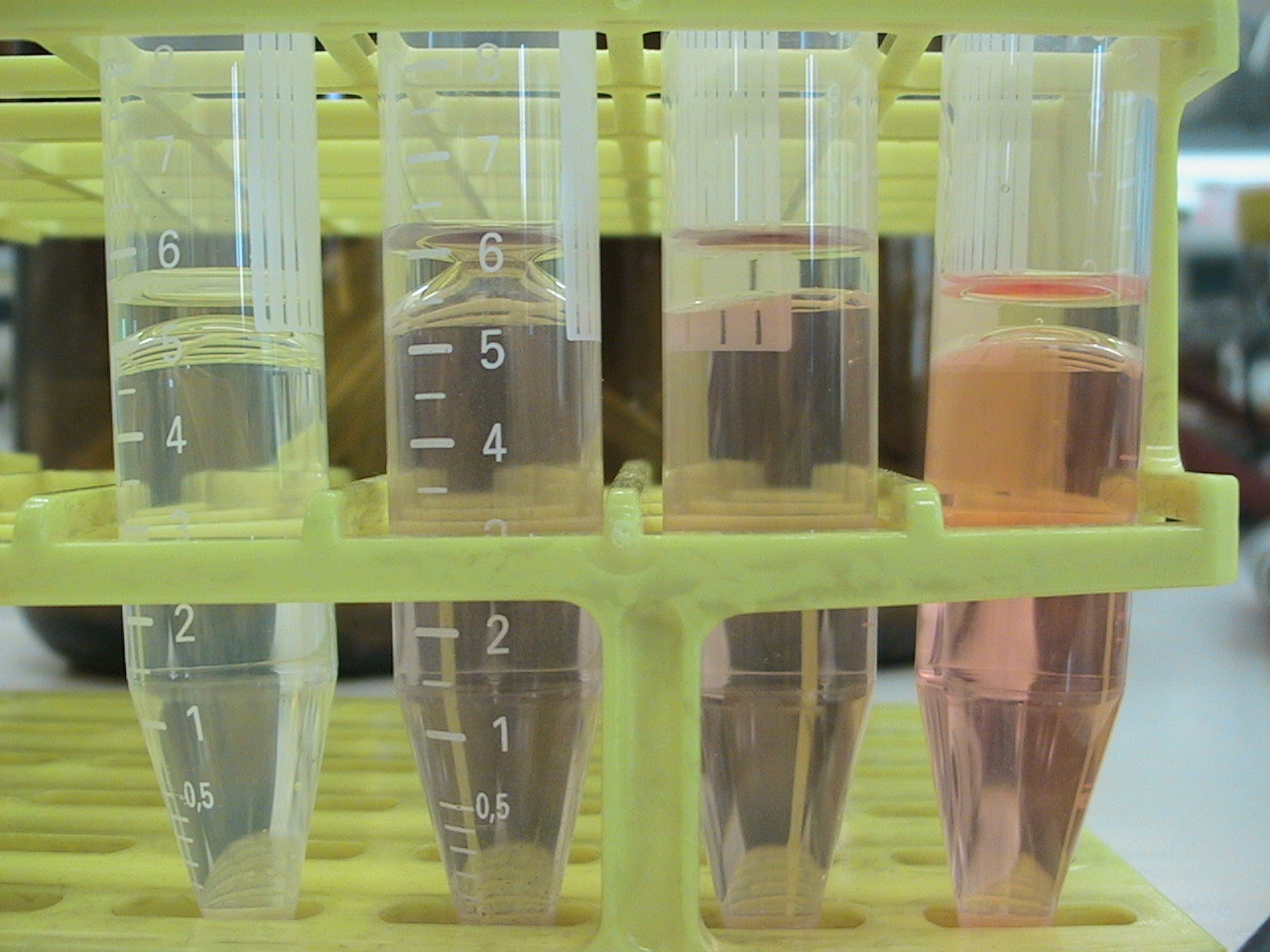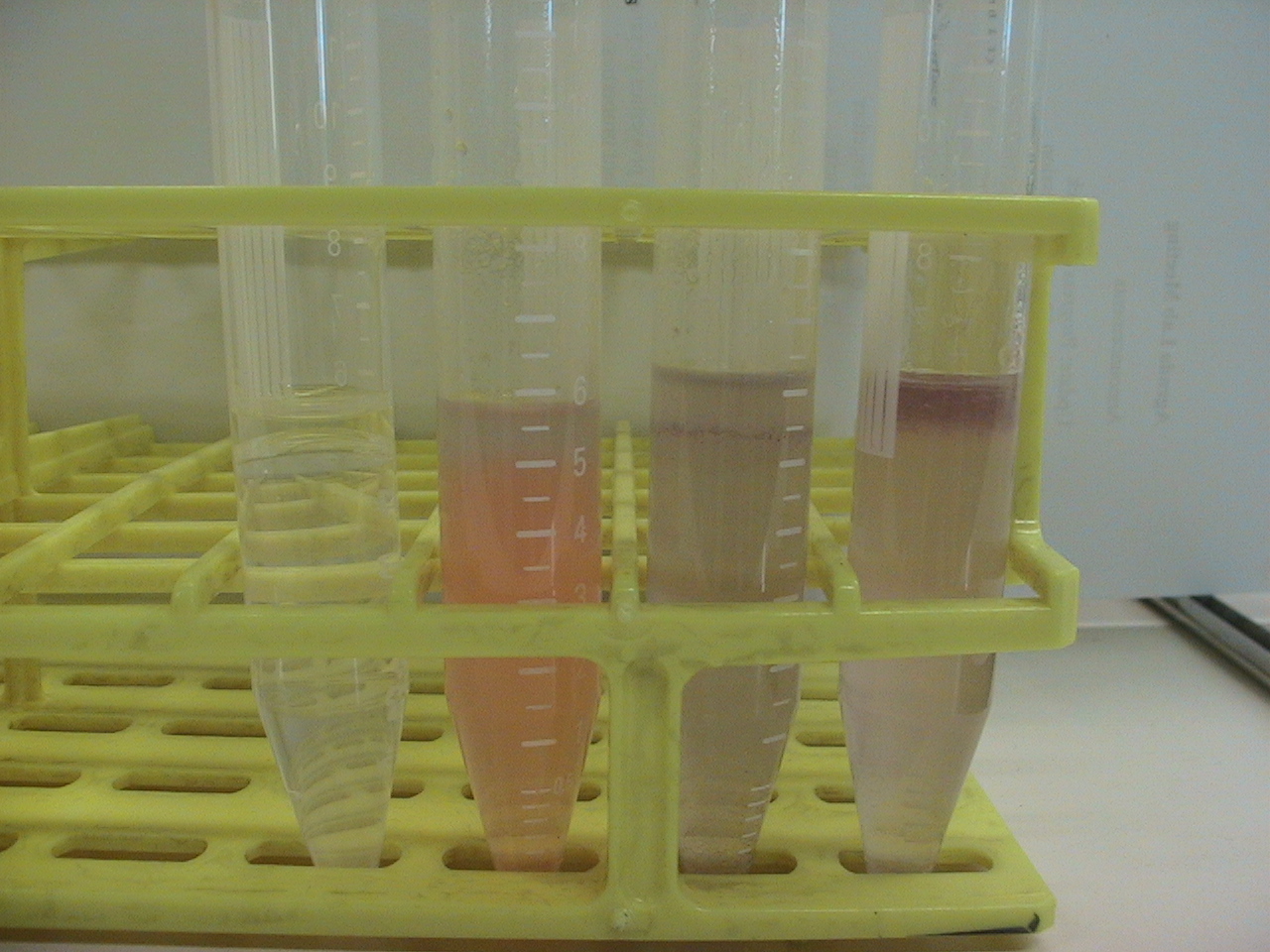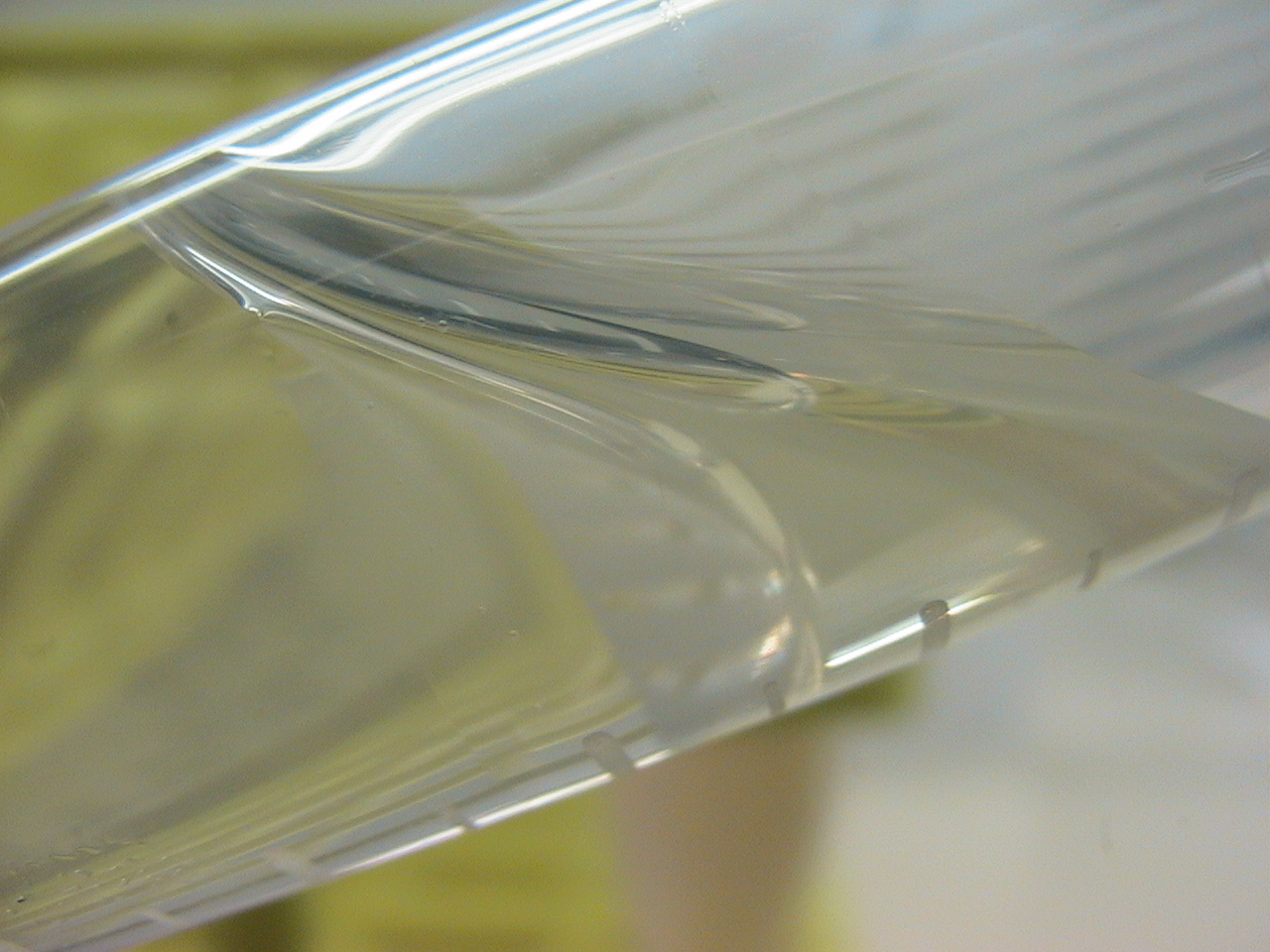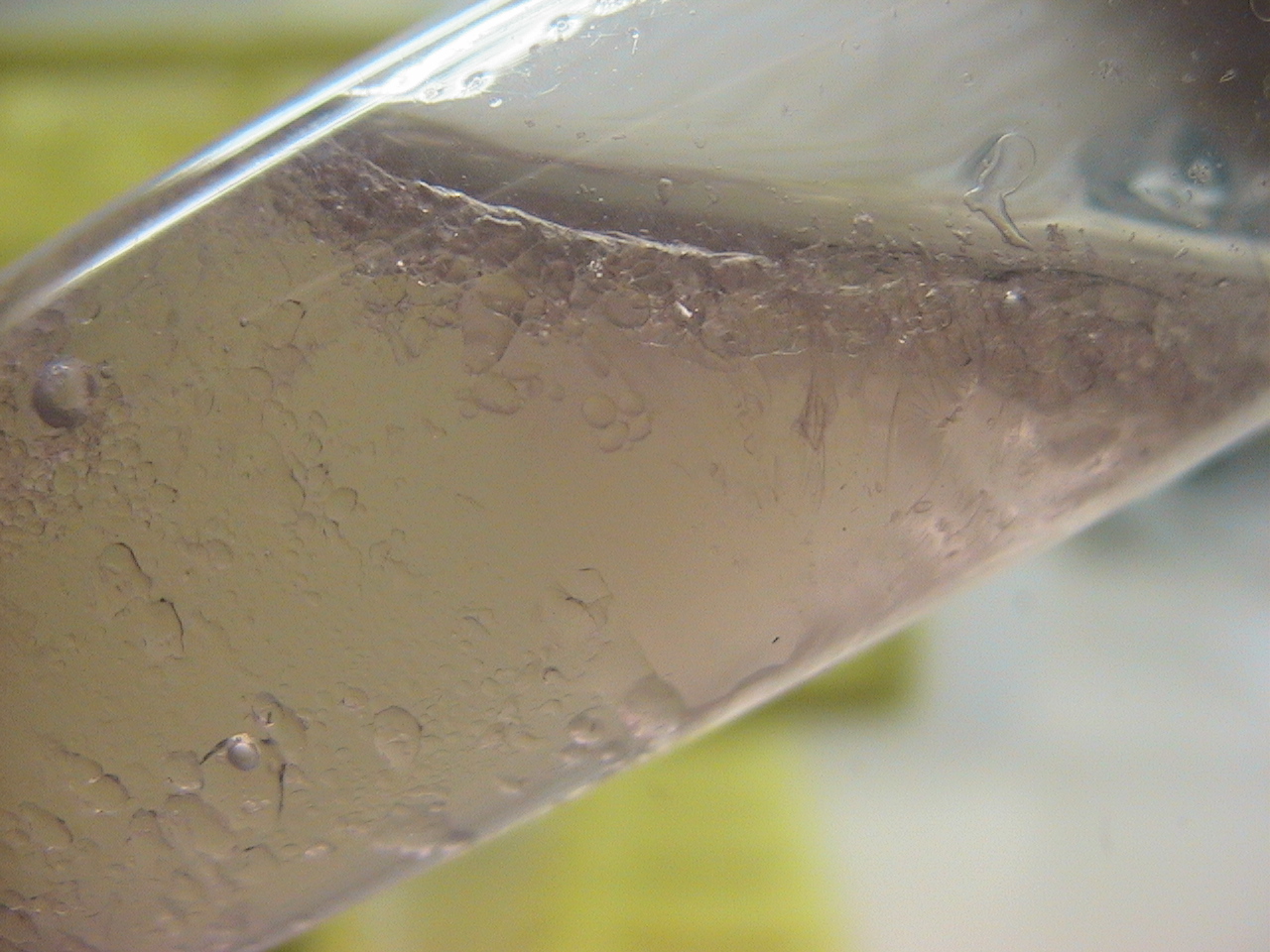Team:Groningen/19 July 2010
From 2010.igem.org
| Line 62: | Line 62: | ||
As aspected the monomeric chaplins helped to disperse the oil throughout the water, this is nicely visualized by the dispersion of the CongoRed throughout the tube. The assembled chaplins do not show this behavior and seem to have grouped within the oil, which is still on top of the water. | As aspected the monomeric chaplins helped to disperse the oil throughout the water, this is nicely visualized by the dispersion of the CongoRed throughout the tube. The assembled chaplins do not show this behavior and seem to have grouped within the oil, which is still on top of the water. | ||
| + | |||
<br> | <br> | ||
| Line 71: | Line 72: | ||
<br> | <br> | ||
| - | In close up, it is observed that the monemeric chaplins do indeed help to disperse the oil in the water. As one can see, small droplets of oil are abundant in the water + Chaplins, were no droplets are observed at the same timepoint after shaking in the control. <br> | + | In close up, it is observed that the monemeric chaplins do indeed help to disperse the oil in the water. As one can see, small droplets of oil are abundant in the water + Chaplins, were no droplets are observed at the same timepoint after shaking in the control. |
| + | |||
| + | <br> | ||
{{Team:Groningen/Footer}} | {{Team:Groningen/Footer}} | ||
Revision as of 14:51, 24 October 2010
Week 29
Modellers:
After lots of meetings the time has come to really start up the modelling part of iGEM. This week we thought about what to model and how. We have looked up and read lots of articles.
David
Drying biofilms
After formation of biofilm on the pieces of wood and ceramics, the material was taken out of the wells plates and put into empty petri dishes. This was put into the 37 C oven for 3 days. Inspection of these dried in biofilms was done by stereomicroscopy.
David & Peter
Dispersant effects chaplin proteins
5 ml of demiwater and 0.5 ml olive oil, adding 500 microliter of 15 mg/ml monomeric chaplins to one tube, 0.5 ml vortexed assembled chaplins, and two controls without chpls added. Also ad 30 microliter congo red solution (3 mg/micro liter) to all samples exept one of the two controls. This congo red will stain the assembled chapl Then vortex for 1 min add max speed, then let the samples sit for 10 min. After this closeup pictures are taken of the oil water interface.
Before Shaking
Left to right: Water+oil, Water+oil+CongoRed+AssembledChaplins, Water+Oil+CongoRed+MonomericChaplins, Water+Oil+CongoRed
After Shaking:
Left to right: Water+oil, Water+oil+CongoRed, Water+Oil+CongoRed+MonomericChaplins, Water+Oil+CongoRed+AssembledChaplins
As aspected the monomeric chaplins helped to disperse the oil throughout the water, this is nicely visualized by the dispersion of the CongoRed throughout the tube. The assembled chaplins do not show this behavior and seem to have grouped within the oil, which is still on top of the water.
Close ups: Shortly after shaking, left: Control (H20 + Oil), right (Water + Oil + Monomeric Chaplins).
In close up, it is observed that the monemeric chaplins do indeed help to disperse the oil in the water. As one can see, small droplets of oil are abundant in the water + Chaplins, were no droplets are observed at the same timepoint after shaking in the control.
 "
"




